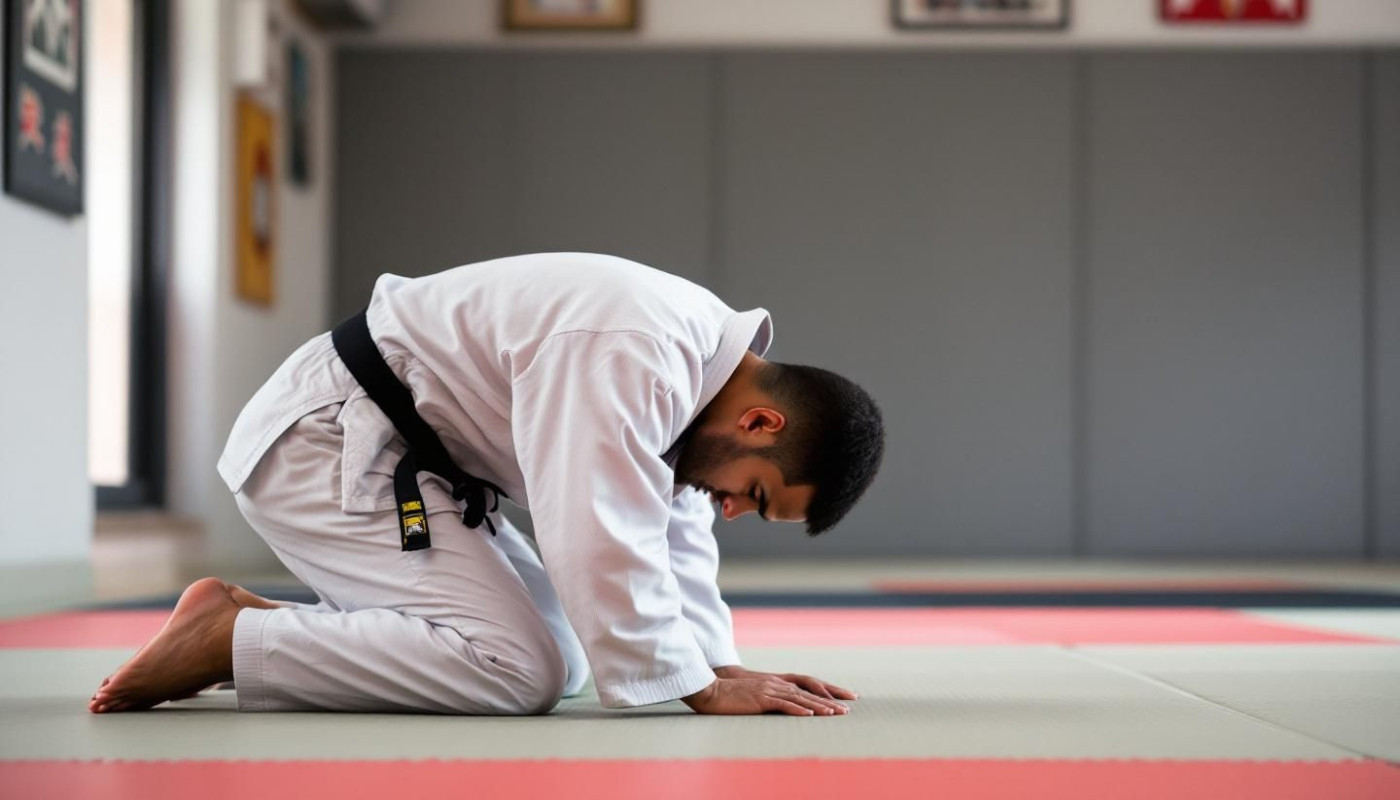Table of contents
Judo tournaments are celebrated not only for their displays of skill and athleticism but also for their rich traditions and ceremonial roles. These rituals, often overlooked by casual observers, carry deep cultural significance and reflect the values at the heart of the martial art. Delve into the following paragraphs to discover how ceremonial roles shape the experience and meaning of judo competitions, adding depth and dignity to every match.
Understanding ceremonial protocols
Judo tournaments are distinguished by their adherence to carefully structured ceremonial roles and protocols, which serve to embody the core values of respect, discipline, and sportsmanship in judo. These traditions begin with the ritual of bowing, known as rei, a practice deeply embedded in judo etiquette and martial arts ceremony. Bowing in judo is more than a physical gesture; it signifies mutual respect among competitors, coaches, and officials, and it is performed at key moments such as entering and leaving the mat, before and after matches, and during formal introductions.
The arrangement of participants during these events is also highly regulated, reflecting the hierarchy and order valued in judo tournament traditions. Officials, referees, competitors, and coaches each occupy designated positions that reinforce discipline and ensure that proceedings run smoothly. An international judo federation official might explain that these protocols set a solemn and respectful tone, reminding all involved of the heritage and values of martial arts. Through these ceremonial practices, every participant is reminded of their responsibility to uphold sportsmanship in judo, ensuring that the competition is not only a test of skill but also a reaffirmation of character and mutual honor.
Role of the referee
In judo tournaments, the referee holds a position that is both ceremonial and authoritative, embodying the values and traditions of martial arts tradition throughout each judo match. At the beginning of every match, the judo referee enters the tatami with a formal bow, a gesture signifying respect for the competitors, the rules, and judo’s historical roots. Before the contest commences, the referee inspects the judogi and ensures all judo match rules are observed, reinforcing fairness and discipline. During the match, clear and codified referee signals such as hajime (start), matte (pause), and ippon (full point) guide the competitors and audience, making the flow of the contest understandable to all. The hand gestures, signals, and the vocalization of terms are not mere procedures but are steeped in tradition, serving to remind participants of the sport’s profound respect for order and etiquette. The ultimate authority in applying penalties or disqualifications, especially in cases such as hansoku-make, lies with the referee, underlining the gravity of maintaining decorum and safety in tournament officiating. After the match, the referee’s bow and the announcement of the result finalize the ceremonial aspect, connecting contemporary sport with its cultural heritage. For insights into recent developments within the international judo community, you could check here.
Significance of opening ceremonies
The judo opening ceremony represents a foundational element within tournament protocol, blending martial arts tradition with expressions of respect and unity. Typically, these ceremonies commence with a flag parade involving participants from various nations, visually embodying the sporting unity that defines international competition. Speeches delivered by respected officials connect the event to the broader judo heritage, often highlighting the sport’s historical values and aspirations for the future. A formal salute, such as shomen ni rei—where all judoka bow to the place of honor—serves as a powerful reminder of the discipline and humility central to martial arts tradition. This symbolic gesture not only pays homage to judo’s founders but also fosters a collective mindset among athletes and officials. Through these carefully structured rituals, opening ceremonies set the tone for the tournament, creating an atmosphere of mutual respect, inspiration, and reverence for the enduring traditions that unite the global judo community.
Impact on athletes’ mindset
Ceremonial roles in judo tournaments play a pivotal role in shaping the athlete mindset, especially in the context of high-stakes judo competition. Rituals such as bowing, formal entrances, and salutation routines are deeply embedded in the culture of the sport and serve as structured pre-match rituals that anchor athletes in the present moment. These traditions are not mere formalities; they help athletes transition from routine mental preparation to a heightened state of focus and controlled energy. The psychological effect of respecting ceremonial roles enhances concentration through the cultivation of zanshin — a technical term in sports psychology referring to a state of relaxed alertness and sustained awareness. By embracing these roles, judokas actively reinforce respect for their opponents and the gravity of the contest, which in turn boosts motivation and discipline. National team coaches have observed that these ceremonial elements enable athletes to reset nerves, channel anxiety into performance readiness, and approach each bout with an optimal psychological edge, demonstrating that ritual and respect are vital components of success in elite-level judo.
Preserving judo’s cultural legacy
Ceremonial roles within judo tournaments play a pivotal part in safeguarding the judo tradition and reinforcing the sport’s cultural heritage. These rituals—ranging from respectful bows at the start and end of matches to the performance of kata—are not merely formalities; they encapsulate key martial arts values such as discipline, humility, and honor. Through these acts, participants and observers witness the practical demonstration of teaching respect, which is integral to any dojo environment. The transmission of these customs ensures that every generation, from novice practitioners to experienced competitors, absorbs and appreciates the deeper meanings behind the sport. Notably, the precision and reverence of ceremonial roles are vital for passing down tradition faithfully, maintaining a living connection to the origins of judo and the philosophy of its founder, Jigoro Kano. By upholding these educational and symbolic components, judo continues to evolve while remaining anchored in its rich, time-honored legacy.
On the same subject

Tracing The Career Milestones Of A Successful Race Driver

Navigating Through the e-Ticketing Process: A Guide for First-Time Users

The most attractive places in Mexico you have to visit

How to choose the best Pokémon plush toy for your child?

Can the Jet-x slot machine make you rich?

What are the tips for making an invitation card online?

Playing VR porn games: how to get started

Importance of setting up a chat module for your site visitors

How to choose your handpan?

Some reasons to use a sexcam site

Gambling addiction : tips to avoid it

What are the online marketing strategies for online casinos ?

Creating a project: how to get there?

What to know about mobile porn games ?

What are the criteria for choosing a company that produces aluminium flooring accessories?

We Tell You All About Dinosaur Bedding

What is a DDOS attack and what does koddos DDOS technology involve?

Full view of BadGirlNatasha

The Whole History of Neuschwanstein Castle

How to succeed in trading?

Why choose the timelapse solution for the follow-up of your construction site ?

The advantages of renting a cottage for the vacations

How do you go about optimizing a question-and-answer website?

Why organize a good party ?

Is there a quote for a small house?

Job Interviews: Beyond the Application, Celebrate the Job

What should I know about affiliate marketing?

Technique for installing a bathroom shower

What not to eat when you work out?

Find your cat in a few steps

What can a chatbot do on Facebook Messenger ?

What can you expect from an SEO agency ?

What are the essential alarm systems in a house?

How to create your chatbot agency ?

Soldering station: how to choose the right one?

How to use the internet safely?

What should you know about SEO?

3 tips for a successful job interview?

The dividend capture strategy and its benefits

Why should you prefer to buy products online?

Online Shopping for Dresses

Comment réussir son stand d’exposition?

What do I need to know about a full face helmet ?

What do you need to know about the dog water fountain?

All about a wireless alarm

The areas of intervention of a cleaning company

Professional washing machine: tips for choosing

Robotic hoover: what do I need to know?

